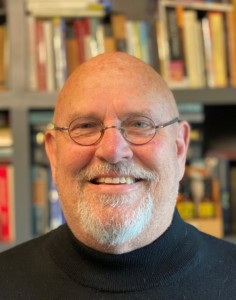Benjamin Franklin, on leaving the Constitutional Convention, is said to have responded to a woman’s inquiry regarding what kind of government the founders would propose – “A Republic if you can keep it.” Franklin’s succinct statement reminds us of the fragility of the American Republic. It assigns responsibility and accountability for the sacred trust given to us as a people, to our leaders, and to our Chief Executive.
There is an optimistic pessimism couched in the subtext of Franklin’s comment. The statement is optimistic because the Republic can be fortified and preserved. It is pessimistic because it acknowledges that the Republic—with which we have been entrusted—will constantly be subject to the threatening onslaughts of the dark moments of human history.
But what is required to keep this sacred Republic with which we have been entrusted? I believe the answer is summed up in one word: statesmanship.
The word stands in stark contradistinction to another: politician. These terms are mutually exclusive. A leader cannot be a statesman and, at the same time, in the same moment, in the same way, be a politician. A statesman works for the common good of all of the people. A politician will do or say anything necessary to retain power. The events of yesterday in our Republic’s Capitol vividly illustrated this qualitative distinction between statesmen and politicians.
It may be argued that statesmanship should have made its presence known much earlier during the political drama of the past four years of the administration under President Donald Trump. But, at least for one brief moment, we got a glimpse of what it means for the cream of statesmanship to rise to the top, so to speak.
Statesmanship appeared in the form of Vice President Mike Pence’s commitment to the sanctity of the ceremonial affirmation of the legitimacy of the electoral college’s reflection of the will of the voters.
Statesmanship took the stage in the form of Republican Senate Majority Leader Mitch McConnell, though long overdue, when he acknowledged the long-term and irreparable damage done to the integrity of the political process by the shenanigans of certain of his peers and the occupant of the Oval Office.
Statesmanship appeared in the form of the multitude of other representatives, both Democrat and Republican, who refused to give credence to the futile tactics of the politicians in their ranks.
On the other hand, we witnessed the unholy trinity of Republicans, President Donald Trump, Senator Ted Cruz (R-Texas), and Senator Josh Hawley (R-Missouri), along with their self-serving peers, who embodied what it means to be merely power-possessed politicians with no interest or concern for the common good of the Republic.
Thanks to the appearance of statesmanship, and despite the presence of politicians, the process was completed, later than expected, but nonetheless completed. The legislators reconvened and carried out the will of the people by certifying the votes of the electoral college in spite of violent protests aimed at thwarting that very process. In that very moment, after all of the turmoil and destruction of the day, Americans witnessed what it is for the Republic to be “kept.”
Yes, we have been entrusted with a Republic, if we can keep it. And, on the day after the drama took place on our nation’s biggest stage, the challenge of keeping the Republic continues.
Under the guide of Providence, grant us statesmen rather than politicians. Our Republic depends on it.
Eddy F. Carder, Ph.D., J.D., teaches constitutional law and philosophy in Prairie View A&M University’s Marvin D. and June Samuel Brailsford College of Arts and Sciences.

